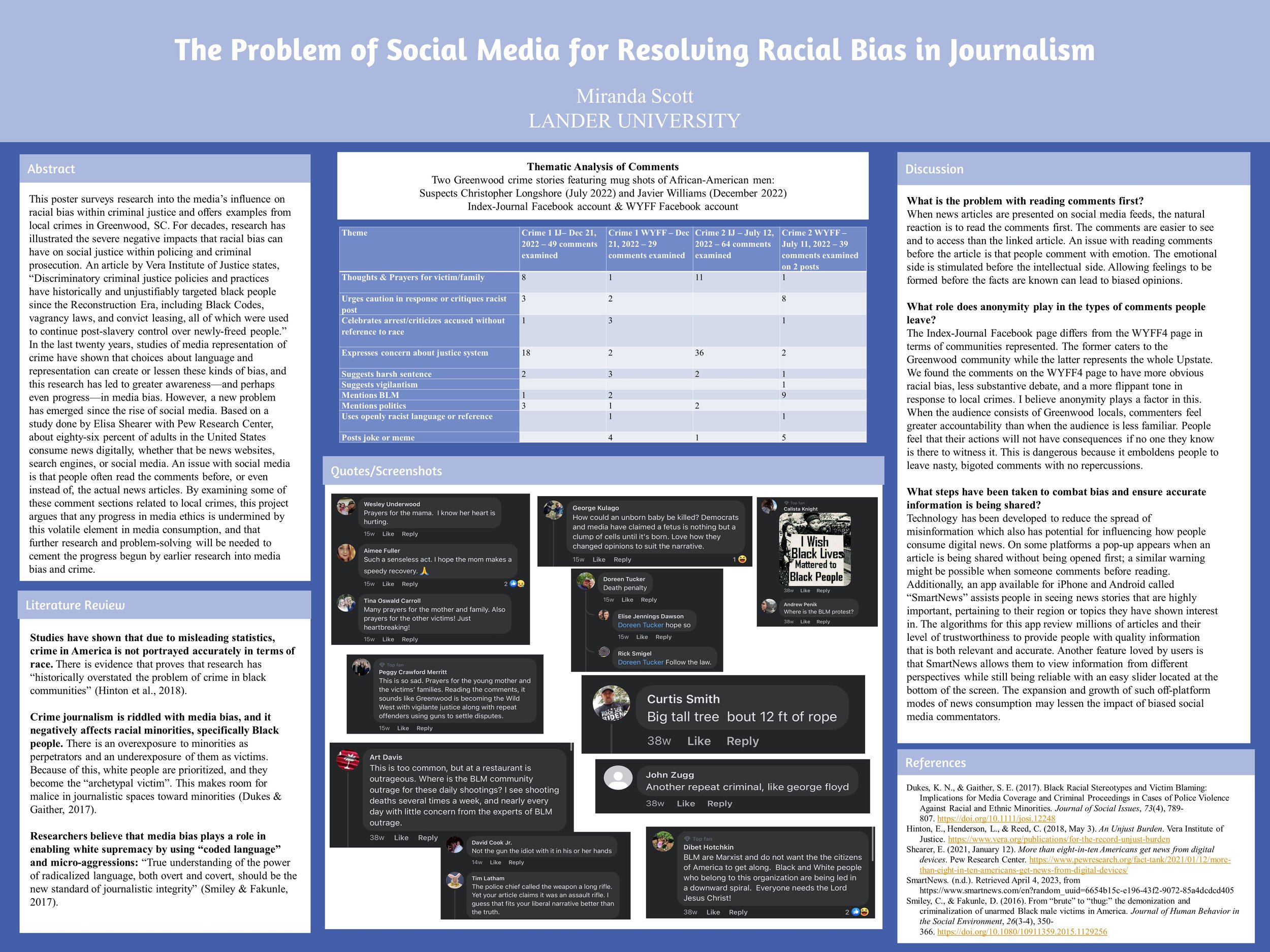The Effects of Social Media on Racial Bias
Miranda Scott
This poster surveys research into the media’s influence on racial bias within criminal justice and offers examples from local crimes in Greenwood, SC. For decades, research has illustrated the severe negative impacts that racial bias can have on social justice within policing and criminal prosecution. An article by Vera Institute of Justice states, “Discriminatory criminal justice policies and practices have historically and unjustifiably targeted black people since the Reconstruction Era, including Black Codes, vagrancy laws, and convict leasing, all of which were used to continue post-slavery control over newly-freed people.” In the last twenty years, studies of media representation of crime have shown that choices about language and representation can create or lessen these kinds of bias, and this research has led to greater awareness—and perhaps even progress—in media bias. However, a new problem has emerged since the rise of social media. Based on a study done by Elisa Shearer with Pew Research Center, about eighty-six percent of adults in the United States consume news digitally, whether that be news websites, search engines, or social media. An issue with social media is that people often read the comments before, or even instead of, the actual news articles. By examining some of these comment sections related to local crimes, this project argues that any progress in media ethics is undermined by this volatile element in media consumption, and that further research and problem-solving will be needed to cement the progress begun by earlier research into media bias and crime.
Miranda Scott is a senior psychology major with a minor in human services. She is a member of the Lander University Honors College and the Psi Chi Honor Society. After graduation in May 2023, she plans on working with domestic violence survivors before moving to Seattle, Washington.
